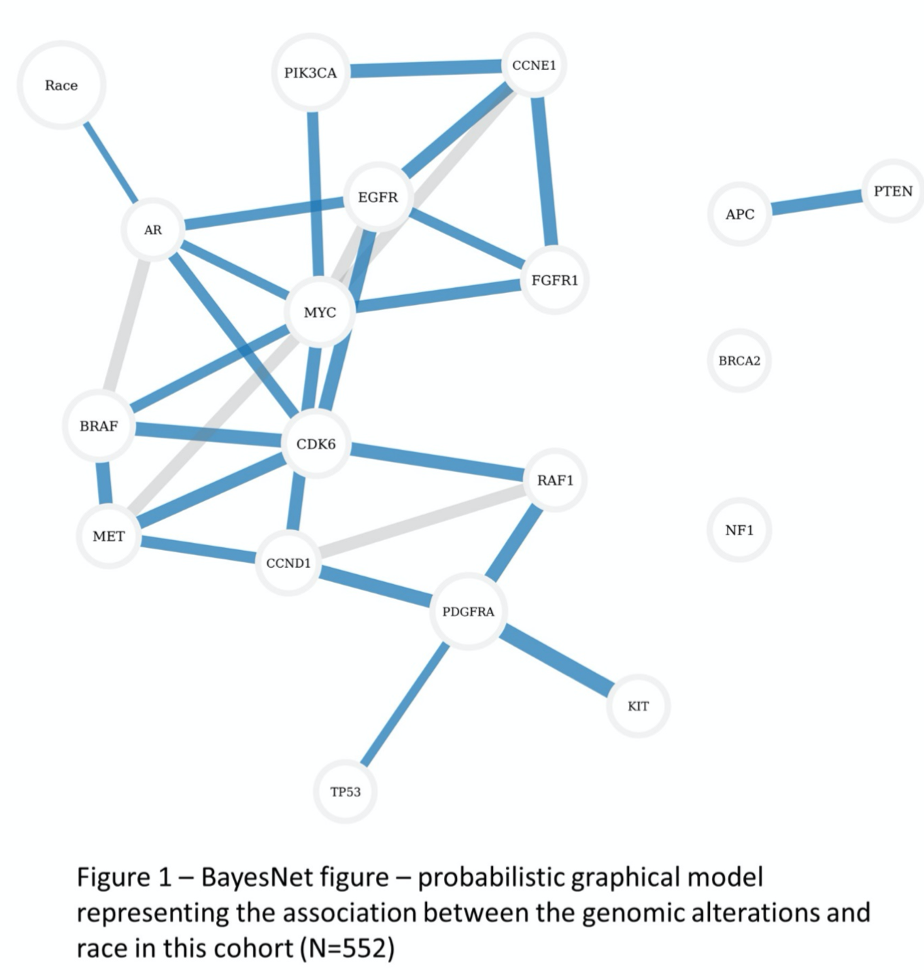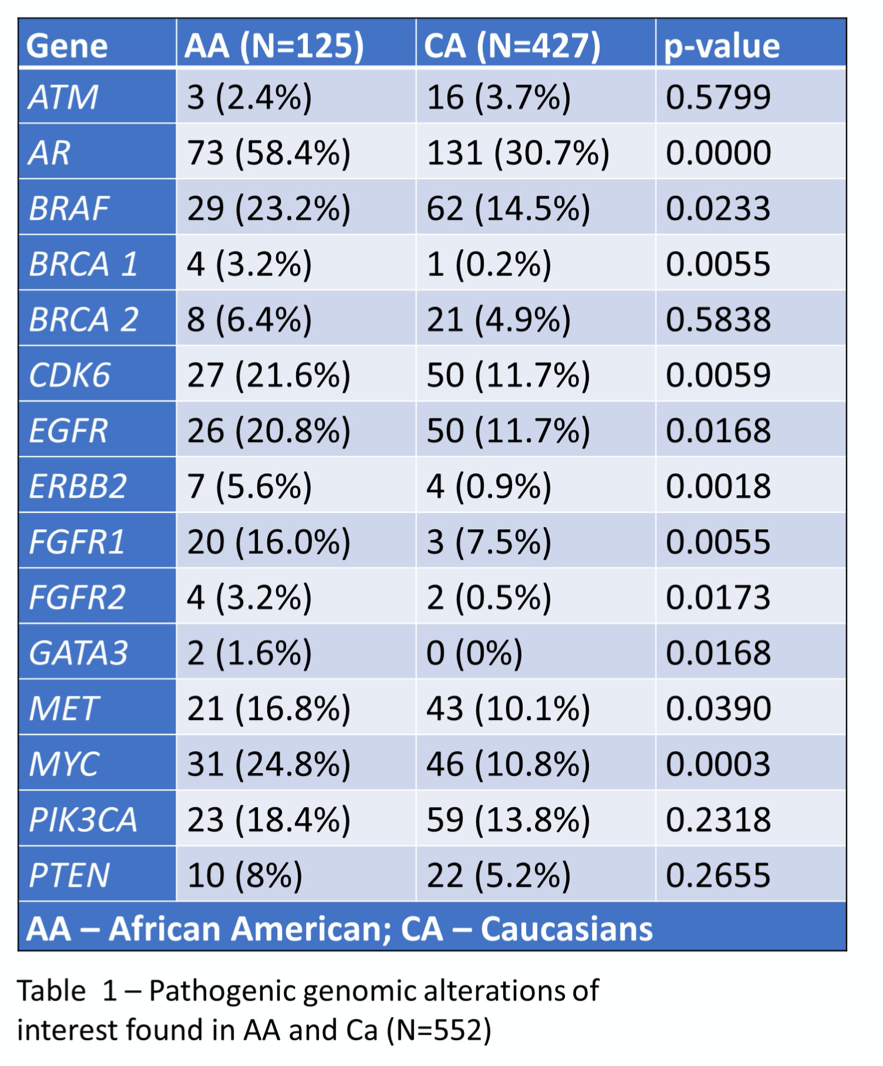To do some, the authors identified men with advanced prostate cancer who had available cfDNA comprehensive genomic profiling utilizing the Guardant (G360) 73 gene panel from six academic centres. In addition to the G360 73 gene panel, the G360 74 gene panel was used to identify CDK12 mutation (as this is not detected in the 73 gene panel) in an independent cohort of patients with advanced prostate cancer. The authors used Barnard’s test to evaluate the association between genetic mutation and gene and a Bayesian Network (BN) machine learning approach to compare the genomic landscape.

In total, the authors included 552 patients (of whom, 125 were African American and 427 were Caucasian) who had available results for the G360 73 gene panel. Numerous genomic aberrations were more common in African American patients, as seen in the following table.

Particularly actionable alterations included BRCA2 (5.3%), BRCA1 (0.9%), ATM (3.4%), PIK3A/mTOR/AKT (16.8%), and PTEN (5.8%).
In the independent cohort of 261 patients with advanced prostate cancer who were tested with the G360 74 gene panel (of whom 106 were African American and 155 were Caucasian), CDK12 mutations were significantly more common in African American patients. (9.4% vs. 1.9%, p=0.006). These findings were supported by machine learning analysis.
The authors conclude that, while these data are hypothesis-generating and require external validation, they suggested that differences in the tumor genomic profile between African American and Caucasian patients with advanced prostate cancer may allow for a molecularly targeted treatment approach which will improve treatment outcomes.
Presented by: Pedro C. Barata, MD, MSc, Assistant Professor of Medicine, Hematology & Medical Oncology, Tulane University, New Orleans, Louisiana
Written by: Christopher J.D. Wallis, Urologic Oncology Fellow, Vanderbilt University Medical Center Contact: @WallisCJD on Twitter at the 2021 American Society of Clinical Oncology (ASCO) Annual Meeting, Virtual Annual Meeting #ASCO21, June, 4-8, 2021


